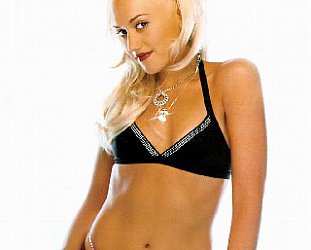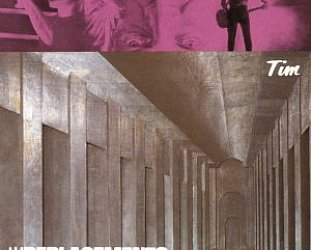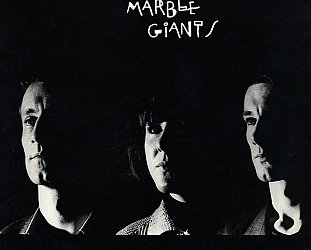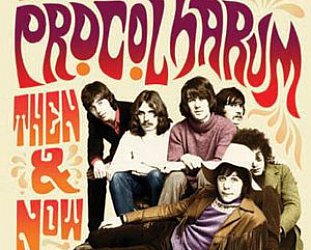Graham Reid | | 2 min read
Burning Spear: Slavery Days

In Ted Bafaloukos' '78 film Rockers -- a lightweight comedy but excellent quasi-doco about the world of Jamaican music with a stunning cast of reggae luminaries -- there are any number of remarkable scenes: the lead character is a drummer (played by Leroy "Horsemouth" Brown) who puts a down-payment on a motorbike with the idea of selling cheap records into shops all over the island.
This entails him going into studios (where we see the Heptones recording Book of Rules among other delights), encounting various producers (Joe Gibbs plays himself), and being immersed in a world full of roots reggae and thick sweet-smelling smoke.
Because of the thick patois the film is helpfully subtitled.
The most exceptional scene comes after Horsemouth's bike is stolen and he goes to the home of the great Burning Spear (Winston Rodney) at St Ann's. They walk out to the beach, oestensibly to discuss the matter, and as they sit on a broken bridge bathed in moonlight Spear pulls two joints out of his sock. Then Spear begins to sing Jah No Dead, a song about the death of Haile Selassie, the Ethiopian emperor Rastafarians believe to be the black king who was prophesised to rise in Africa.
The scene is engrossing, just Spear's emotional voice and the lapping of the waves, as he sings of how some are saying their god is dead, but "Jah no dead".
Of all the Rastafarian reggae singers Burning Spear is, for my money, the most compelling: like an Old Testament prophet, his voice sounds as if it has come down from the ages; he is Garveyite with an unshakeable faith in the "Back to Africa" words of the movement's leader Marcus Garvey; and when he sings of the days of slavery as if they had only just passed.
Burning Spear -- originally the name of the group he founded but which adopted as his own when he went solo -- has released a dozen or so albums since the late Seventies but none are better than his early albums: especially Marcus Garvey ('75) and Social Living ('78), two albums which came with subsequent dub versions (heavily atmospheric remixes) as Garvey's Ghost and Living Dub.
At the time Spear wasn't yet 30 and yet he sounds for all the world like a voice of wisdom come down from the mountain top with tablets of truth.
With their dub versions -- excellent introductions to the x-ray music that is dub -- these two albums fairly boom out of the speakers with righteousness and sometimes an ineffable sadness. Cornerstones in any serious reggae collection -- and the one linked to here is the Marcus Garvey album with its dub on the same disc.
After this deep immersion there are any number directions in which to move: the Rockers soundtrack (and DVD) will opens doors to great performers such as the Maytones, Jacob Miller, Junior Byles and many more; the equally mythic and dense Blackheart Man by Bunny Wailer; Black Uhuru's early albums; the enormous and mad catalogue of Lee "Scratch" Perry . . .
There you go: cornerstone reggae -- and Bob Marley's name never even got a mention.
Burning Spear is interviewed here.
These Essential Elsewhere pages deliberately point to albums which you might not have thought of, or have even heard . . .
But they might just open a door into a new kind of music, or an artist you didn't know of. Or someone you may have thought was just plain boring.
But here is the way into a new/interesting/different music . . .
Jump in.
The deep end won't be out of your depth . . .






Gavin Hancock - May 19, 2011
Yes there are roots reggae artists other than Bob Marley who recorded for Island! I think the lyrics carry more weight too and then there's Spear's voice...you can feel the history of slavery and Jamaica in those bittersweet tones. Should be in every reggae lover's collection.
Savepost a comment